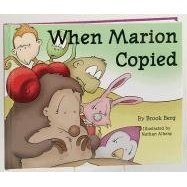plagiarism
Plagiarism Prevention Can Start At An Early Age
02/08/2007 10:23 Filed in: Books & Literature

With younger students, plagiarism often occurs out of ignorance. How many of us turned in reports copied out of the World Book Encyclopedia word for word when we were younger simply because no one told us that doing such was wrong? And I admit right here that the first term paper I ever turned in was plagiarized; but at the time (9th grade), I had no idea that what I was doing was wrong. I came into my school mid-year and one of my courses was at an advanced level that required a term paper for higher credit. The other students had written their papers at the beginning of the year with complete instructions on how to do so. When I asked my teacher how to write a term paper, she said that basically I had to use a minimum of six other sources in my paper. So I simply divided the minimum page requirement for the paper into six parts, wrote down information from each book in my notebook, and then had my mother type it up for me (she was a much faster typist at the time). I even listed the six sources on a bibliography page in the back of the book, and did not realize until two years later when we wrote term papers in my junior year English class that what I had done as a freshman was wrong.
I found it interesting in Berg's book that the source of plagiarism for her fictional characters was not the encyclopedia as it was in my day, but the internet. This certainly brings this issue up to date because the main source today for plagiarized texts among students of any age is the internet. When Marion Copied is aimed at elementary age children, but it's almost just as tempting to read it in a college classroom as well.
This is a book you certainly should pick up for your children if they are in elementary grades, and you might even want to consider donating a copy to their classroom or school's library as well.
|
The Ethic of "It's Legal As Long As I Don't Get Caught"
02/06/2007 15:41 Filed in: Culture Watch

I am completely appalled at what just happened to me! A first year teacher was being observed by a college professor and he heard me announce to a class of students in a health class that as we research we do not cut and paste information onto Word documents to use as presentation material, but that we take notes from what we read on the web. This professor turns to me and asks me why they can’t do that? I told him that breaks copyright laws and he says, “How would the person who wrote the information on the web know the student used their work?” How about that?
This, of course, is the ethic of "it's legal as long as I don't get caught." Plagiarism is a huge problem on college campuses these days (and even seminaries--I'm a grader at SBTS and know full well), and it makes one wonder what this particular professor would accept in his own classes.
I went through a period teaching my classes at IWU in which I had about three blatant plagiarism issues one right after another. I've since found that if I address the issue up front on the first day of class, both in discussion and in the syllabus that there's less likelihood of a student trying to steal work from an outside source. I explain to my students (without revealing my secrets) that I'm very good at spotting it, and by the time I speak to them about any incident, I will have already confirmed that it is indeed plagiarism with the dean and it will already be on their records. As I said, I don't have instances of plagiarism nearly as often now that I've taken a proactive approach. But with teachers like the one described in the quote above, encouraging the theft of others' work, it continues to be an uphill battle.









